An average electricity bill for a 1-bedroom apartment costing $75-$168 can be a nightmare. The most one can do is limit their consumption and seek economical solutions, such as understanding their appliance usage and balancing the amount.
However, a better option is to switch to natural resources and take advantage of solar energy. For this, Jackery offers a product range from solar panels to power stations that can help you cut down the average electricity bill. With Jackery Solar Generators, you can use your appliances with solar energy - without having to pay a hefty amount.
What Is The Average Electricity Bill for A 1-Bedroom Apartment?
The average electricity bill of a 1-bedroom apartment in the US can easily range from $75-$168 and can exceed depending upon your consumption, lifestyle, and the place you live. It comprises 41% of total expenses in America and mostly comes from cooling and heating appliances in use. When you sit down to analyze your expenditure, you will realize that the air conditioning system is by far the largest contributor to your electricity bill.
Understanding this with figures, the average electricity bill for a 1-bedroom apartment in New York is more or less $70 to $100 per month, while Seattle people have to pay a lower bill of $60 per month. On the other hand, the Houston average electricity for a 1 bedroom apartment goes even higher to $147 a month. The lighting of the apartment influences these costs.
Here are a few of the major cities of America and their average electricity bill by state.
|
State |
Average Electricity Bill |
|
Hawaii |
$168 |
|
Connecticut |
$151 |
|
Alabama |
$150 |
|
South Carolina |
$145 |
|
Mississippi |
$136 |
|
Idaho |
$94 |
|
Illinois |
$92 |
|
Colorado |
$83 |
|
New Mexico |
$80 |
|
Utah |
$76 |
Source: EIA
Whether you live in arid or dry regions or cold and glaciated areas, these air conditioning systems will satisfy your need to stay cool and warm. So, even if you live in a one-bedroom apartment, your bill can vary due to the weather conditions of the place you live in.
What Uses The Most Electricity in A 1-Bedroom Apartment?
In a world of technological advancements, it is impossible to live without gadgets or appliances in homes and offices. Houses in the US are loaded with appliances and machinery that require electricity to function, which contributes to huge electricity bills at the end of the month.
Some of the most common gadgets found in our homes include:
- Television
- Refrigerator
- Air conditioners
- Microwave
- Dishwasher
- Washing machine chargers
Most appliances, such as TVs and chargers, are constantly connected to the power joints even when not in use and consume more power. This can be managed by introducing energy-saving and certified appliances. Furthermore, turning off the power points can also help regulate the bill.
Heavy appliances like ACs and laundry machines extract a lot of energy when in use, making your electricity bill an unmanageable burden. You might think that while you are living in a small space, your utility bill is still extensive, but it is your appliances that make it a cumbersome expenditure in times of inflation.
However, you can reduce this by consciously investing in appliances that are energy efficient or using renewable resources like solar energy to run. Remember that every kilowatt-hour you save will be deducted from your month-end expense, resulting in a kilowatt-hour less to be paid.
Below is a table of the commonly used appliances and electronics and how much power they use every hour and month, you can find more about average electricity bills by states here:
|
Appliance |
Energy used/hour |
Energy used/month |
Electricity bill/month |
|
Portable Heater(1500 watts) |
15 kWh per hour |
364 kWh per month |
$36 |
|
Heat pump |
10 kWh per hour |
205.71 kWh per month |
$30.86-324 |
|
Electric furnace |
10.5 kWh per hour |
300 kWh per month |
$195.89 |
|
Fan |
0.2-0.4 kWh per hour |
22.17 kWh per month |
$1.09-$1.70 |
|
Water heater |
2 kWh per hour |
180 kWh per month |
$15 |
|
Oven 1500w |
2.3 kWh per hour |
1080 kWh per month |
$172.80 |
|
Dishwasher |
1-2.17kWh per hour |
120-240 kWh per month |
$40 |
|
Refrigerator |
kWh per hour |
72 kWh per month |
$20 |
|
Hair dryer |
1.5 kWh per hour |
9.13 kWh per hour |
$1.30 |
|
AC |
3.5 kWh per hour |
720 kWh per month |
$90 |
|
Washing machine front loader |
1.5 kWh per hour @ 3 loads a week |
18 kWh per hour |
$2.34 |
|
Washing machine top loader |
6.15 kWh per hour @3 loads a week |
73.8 kWh per hour |
$9.59 |
What Factors Affect The Average Electricity Bill for A 1-Bedroom Apartment?
In addition to overspending, the majority of people also struggle with their electricity bills for a variety of reasons. The causes behind the accumulation of large units include lifestyle and appliance use. Although the average power bill can also be influenced by other factors like:
Age of the Apartment
The newness of your apartment is one of the key factors that help determine the cost of electricity. If the apartment or accommodation is older than 10 years, it is very likely that the wiring and connections are outdated. However, if the apartment is new, it will have more efficient appliances and fittings that will save you money.
Electricity Rates
Electricity charges are not the same and universal. Geographic location and hourly consumption also play a major role. Therefore, electricity rates differ not just from state to state but also how the power is used day and night. Usually, consumption is higher during the evening than during the daytime, which in turn affects the billing process.
Number of People
People living together can increase the bill. The more roommates, the more consumption. This would mean more laundry, more lighting, and more dishwashing. In addition, more people would be running multiple devices and gadgets at the same time, which would lead to an increase in the bill.
Lifestyle
The way one lives is another significant factor that affects the electricity bill. A person with a minimalist approach might get lower bills than others. If you love living king-size and wish to get everything done at ease, then this means you would be using more appliances, leading to a huge electricity bill.
Change in Weather Conditions
Extreme temperatures can boost heating and cooling demand, leading to increased electricity prices. You might require a 24-hour working AC or heater to deter the effects of weather. Since 50% of your electricity bill comes from heating and cooling appliances, extra usage of these can lead to more bills.
While most of these factors contribute to enhancing the bill, Jackery Solar Generator 3000 Pro can help you reduce your electricity bill by switching to solar energy.
How to Save an Electricity Bill for A 1-Bedroom Apartment?
Saving electricity is a must for every individual. It not only helps preserve resources but also cuts down costs. Here are a few tips that you can follow to enjoy a low electricity bill.
Adjust Your Thermostat
Adjusting your thermostat to 68°F to 70°F while you are at home or awake and 10-15 degrees lower when you sleep or are not present at home will help you save 5% - 15% on your electricity bill. To do this, you might need to install a programmable thermostat.
Use Efficient Appliances
The advanced and upgraded appliances in the market have energy-efficient programs that can function and draw power according to need. Using new and effective appliances that are energy star rated will lead to less energy consumption and can help you save electricity in the long run. Make sure that your cooling and heating appliances, like heaters and air conditioners, are always in good condition so that they run efficiently.
Switch to Clean Energy
Switching to independent sources of energy like solar energy that do not require you to pay bills every month can help you save money. Investing in Jackery's range of solar power systems, like Jackery SolarSaga Solar Panel and Jackery Solar Generator 3000 Pro, will help you produce your own power, so you will not have to pay huge electricity bills.
Replace Old Lights With LED Lights
Switching to LED lighting and unplugging unused electronics can save money on your electricity bill. LED bulbs use 75% less energy and last 25 times longer, producing bright light without heat.
Making Judicious Use of Electricity
Building smart energy habits such as cold water washing, air drying, turning off lights when not in use, and unplugging devices like TVs when not in use can significantly reduce electricity bills. It's also important to avoid running multiple appliances simultaneously to avoid increasing energy consumption and reduce carbon footprint.
Jackery Solar Generators for 1-Bedroom Apartment
One of the best ways to reduce power consumption is to invest in clean energy. Using a solar generator for a one-bedroom apartment can help you reduce electricity bills and ensure they do not exceed the budget. Jackery is one such global brand that is known for its one of the best ranges of power backup solutions made for home backup and off-grid living.
Jackery SolarSaga Solar Panels are built with extremely potential monocrystalline silicon solar cells that absorb and convert the sun's rays into electricity. The DC electricity transfers to the Jackery Explorer Portable Power Station. Later, the DC electricity converts into AC electricity, which is suitable for charging devices and power outlets.
Jackery Solar Generator 3000 Pro
Jackery Solar Generator 3000 Pro is one such example that can help you avoid heavy bills. It can charge up to 99% of appliances and can even function in lower temperatures up to -4~104 ℉. With a huge 3024 Wh capacity and a powerful 3000W power output, the Jackery Solar Generator 3000 Pro is the ultimate power master and partner that you need.
The Jackery Solar Generator 3000 Pro is not only portable but also has a transfer switch to create a whole-home backup solution. You can easily power any outlet at home and use the Jackery Solar Generator 3000 Pro without much hassle. It is an excellent power source for RVs, camping, and home emergencies.

|
Jackery Solar Generator 3000 Pro |
|
|
Capacity |
3024 Wh |
|
Lifecycle |
NMC |
|
Battery Cell |
2000 cycles to 70%+ capacity |
|
Recharging Methods |
Solar Recharging: 3.5 H (6*Jackery SolarSaga 200W Solar Panels) Car Recharging: 35 H Wall Recharging: 2.4 H |
|
Output Ports |
AC Output (x1): 120 V~ 60 Hz 25 A Max AC Output (x3): 120 V~ 60 Hz 20 A Maximum USB-C Output (x2): 100 W Maximum, 5 V⎓3 A, 9 V⎓3 A, 12 V⎓3 A, 15 V⎓3 A, 20 V⎓5 A |
|
Working Hours |
Freezer (200W): 12.8H Clothes Dryer (1500W): 1.7H Microwave (1300W): 1.9H Dishwasher (250W): 10H Toaster (850W): 3H Standard Light Bulb (60W): 42.8H Sump Pump (800W): 3.2H Window AC (1000W): 2.5H |
|
Customer Reviews |
“This Generator is a game changer. The battery lasts for hours. Solar panels work great and can be used anywhere.” — Kenny Barrett. |
Jackery Solar Generator 2000 Plus
Jackery Solar Generator 2000 Plus is another mega power saver that delivers 2 kWh - 24 kWh expandable power. You can expand the capacity with a gigantic 24 kWh by installing a battery pack and solar panels. It is perfect for an off-grid life and for keeping you powered during long blackouts.
This Jackery Solar Generator 2000 Plus effortlessly powers heavy-duty devices up to 6000W and 120/240V expandable voltage. Its battery lifespan of 10 years gives you the relief of long-term investment that you enjoy without worrying. For a 1-bedroom apartment, Jackery Solar Generator 2000 Plus can save you in long power cuts and even reduce your utility bill.

|
Jackery Solar Generator 2000 Plus |
|
|
Capacity |
2-24 kWh |
|
Lifecycle |
LiFePO4 |
|
Battery Cell |
4000 cycles to 70%+ capacity |
|
Recharging Methods |
Solar Recharging: 2 H (6*Jackery SolarSaga 200W Solar Panels) Car Recharging: 25 H Wall Recharging: 2 H |
|
Output Ports |
AC Output (×4) 120 V~ 60 Hz, 20 A Maximum AC Output (×1) 120 V~ 60 Hz, 25 A Maximum USB-A Output (x2): Quick Charge 3.0, 18 W Maximum USB-C Output (x2): 100 W Maximum, (5 V, 9 V, 12 V, 15 V, 20 V up to 5 A) |
|
Working Hours |
Freezer (200W): 8.6H Clothes Dryer (1500W): 1.1H Microwave (1300W): 1.3H Dishwasher (250W): 7H Toaster (850W): 2H Standard Light Bulb (60W): 29H Sump Pump (800W): 2.1H Window AC (1000W): 1.7H |
|
Customer Review |
“Quality all the way! Works like a charm!” - Jared. |
Average Electricity Bill for 1-Bedroom Apartment FAQs
What is the average electricity bill for a 2-bedroom apartment?
The average bill for a 2-bedroom apartment is nearly $76 and can increase depending on the lifestyle and people living in the apartment.
What costs the most electricity in an apartment?
The cost of electricity is determined by heavy-duty appliances at home, especially heating and cooling devices like water heaters, thermostats, air conditioners, and refrigerators, which contribute 50% of the total bill.
How much electricity does a single person use?
According to the US EIA (Energy Information Administration), an average person consumes nearly 909 kWh of energy per month and 10,909 kWh per year.
How to calculate the electricity bill?
Take note of your previous month’s with the current meter readings. Calculate your electricity consumption by subtracting the previous month's reading from the current month's readings. Then multiply it by the tariff rates mentioned on your bill copy or the website of your electricity supplier.
Previous month reading — Current month reading * Tariff = Electricity cost
Example: Previous month reading = 1300 kWh
Current month readings = 1500 kWh
Energy consumption = 1500 kWh-1300 kWh = 200 kWh
Tariff rate = $6 per kWh
Total electricity cost = 200 kWh * $6 per kWh = $1200
Final Thoughts
Even though living in a small apartment can seem like a budget-friendly option, you still cannot escape the huge electricity bills. An average electricity bill for a 1-bedroom apartment can go much higher based on the energy consumption of appliances and people living there.
While reducing and managing the use of appliances can help you reduce your monthly bill, you can effectively switch to clean energy options like solar energy to enjoy an independent power supply.
Jackery Solar Generator 3000 Pro and Jackery Solar Generator 2000 Plus can help you in this matter. They charge up to 99% of appliances that can be used outdoors and during blackouts. Paired with Jackery SolarSaga Solar Panel, these Jackery Solar Generators are designed to work according to individual use and climate conditions.

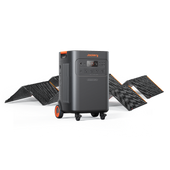











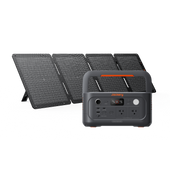



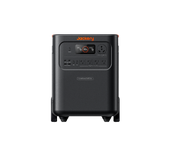
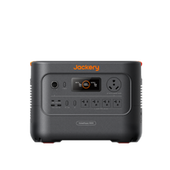





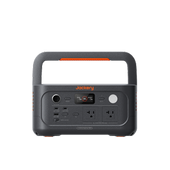





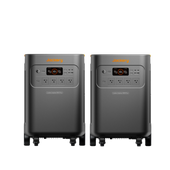
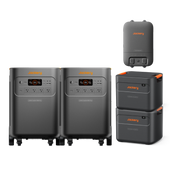





![[Add - on] Jackery Manual Transfer Switch for Explorer 5000 Plus - Jackery](http://www.jackery.com/cdn/shop/files/add-on-jackery-manual-transfer-switch-for-explorer-5000-plus-9017324.png?v=1754016782&width=170)

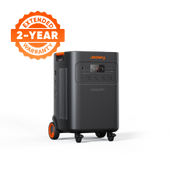

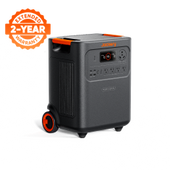





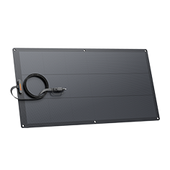
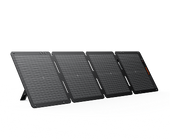




















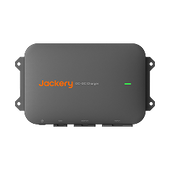




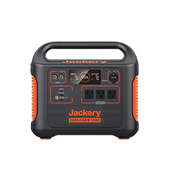






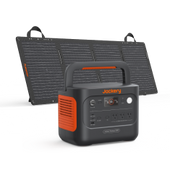
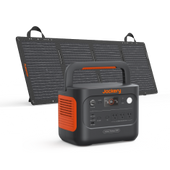






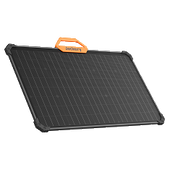


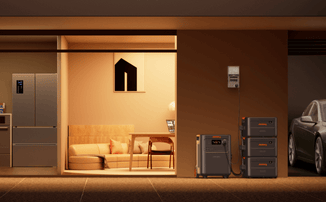














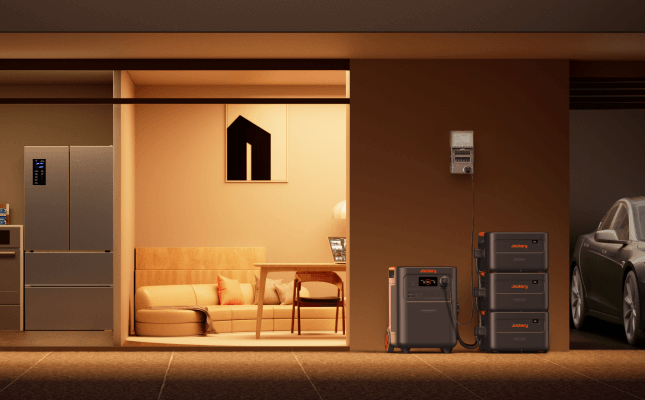


















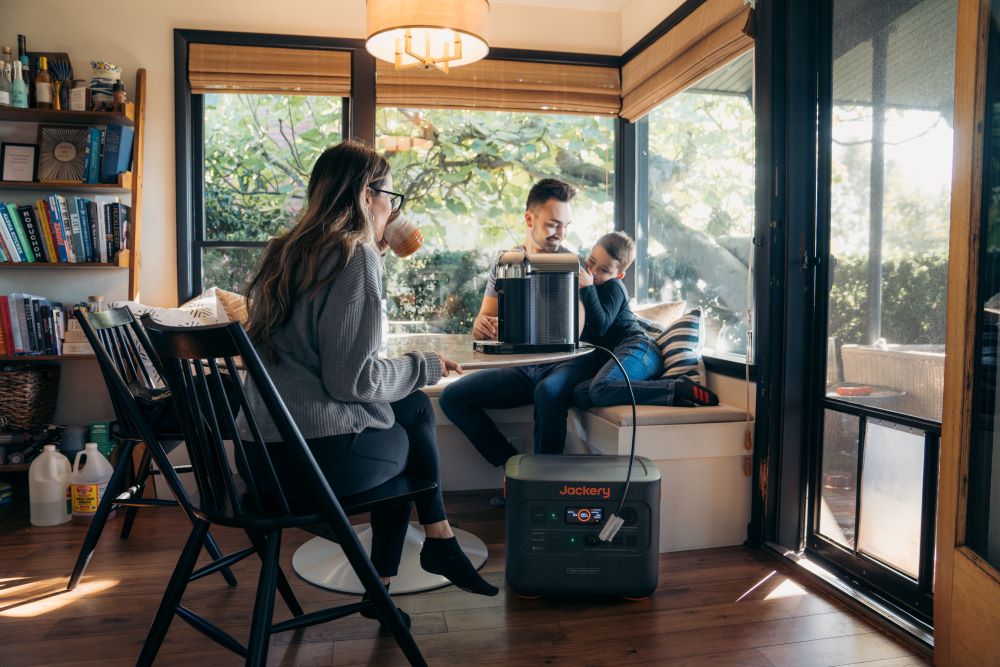






Leave a comment